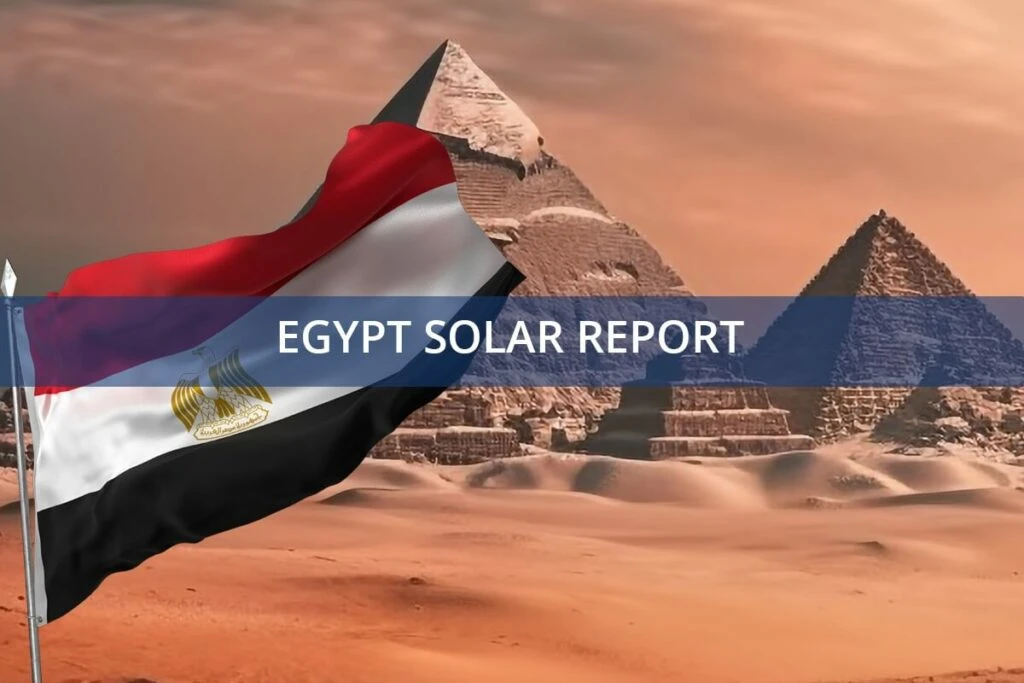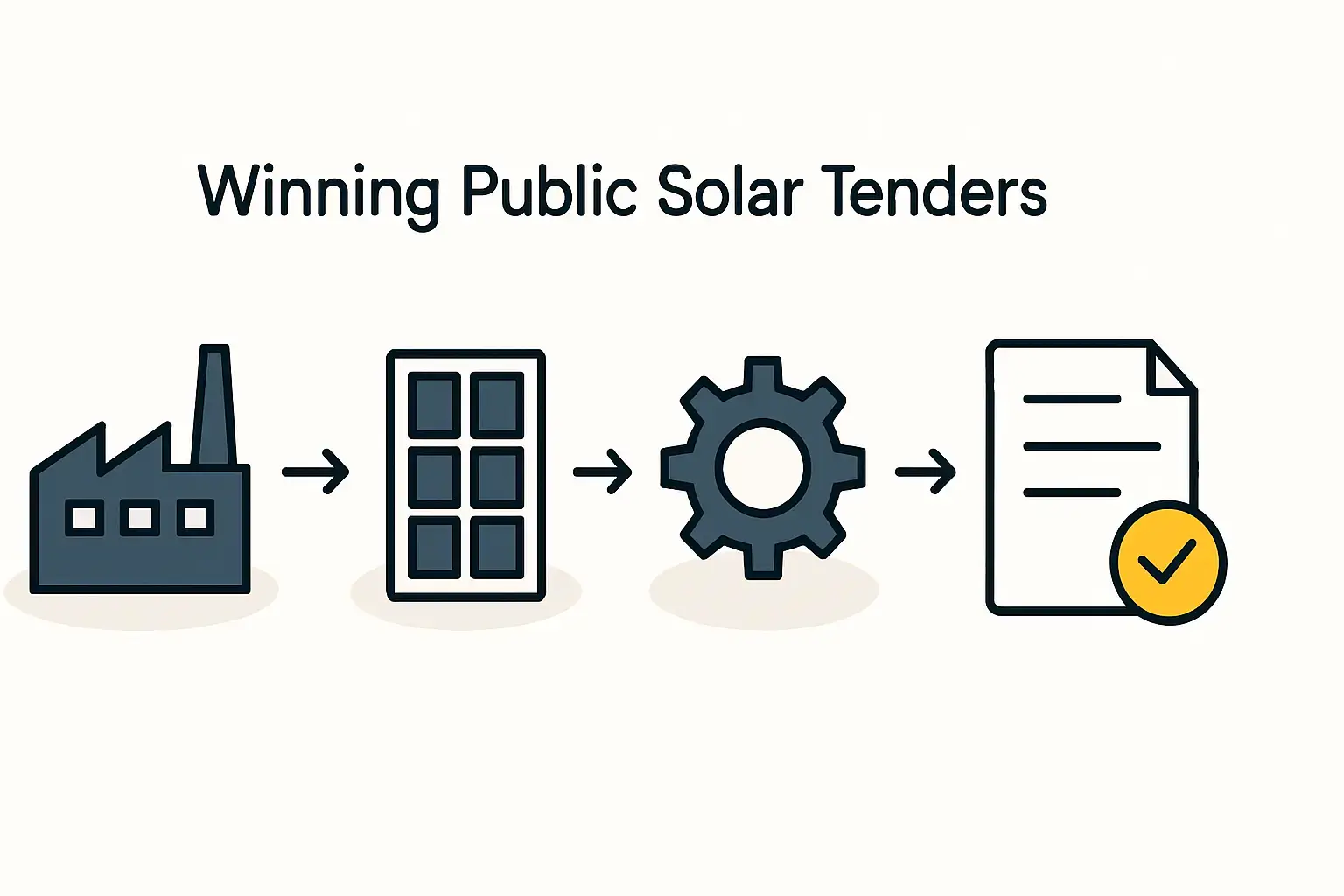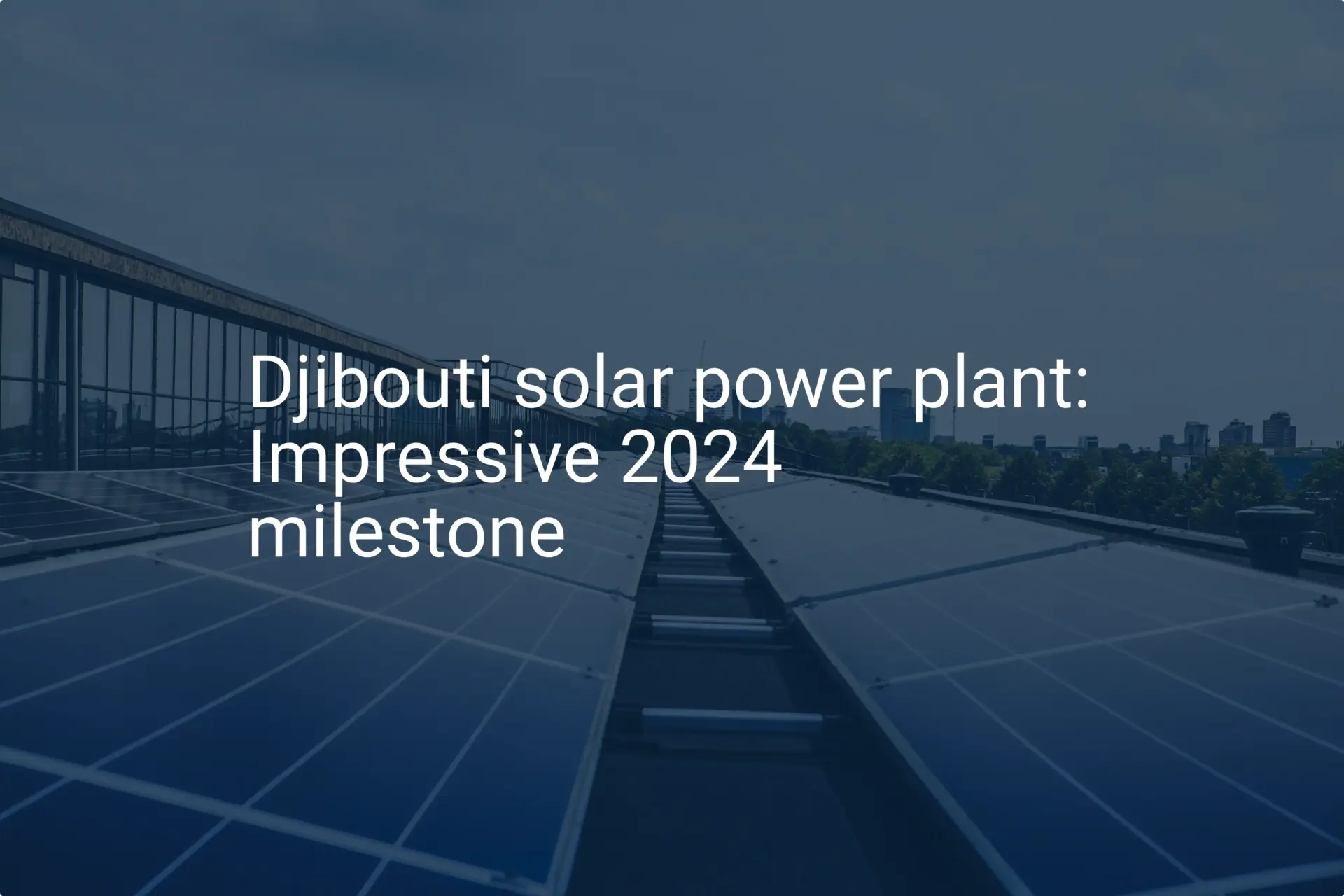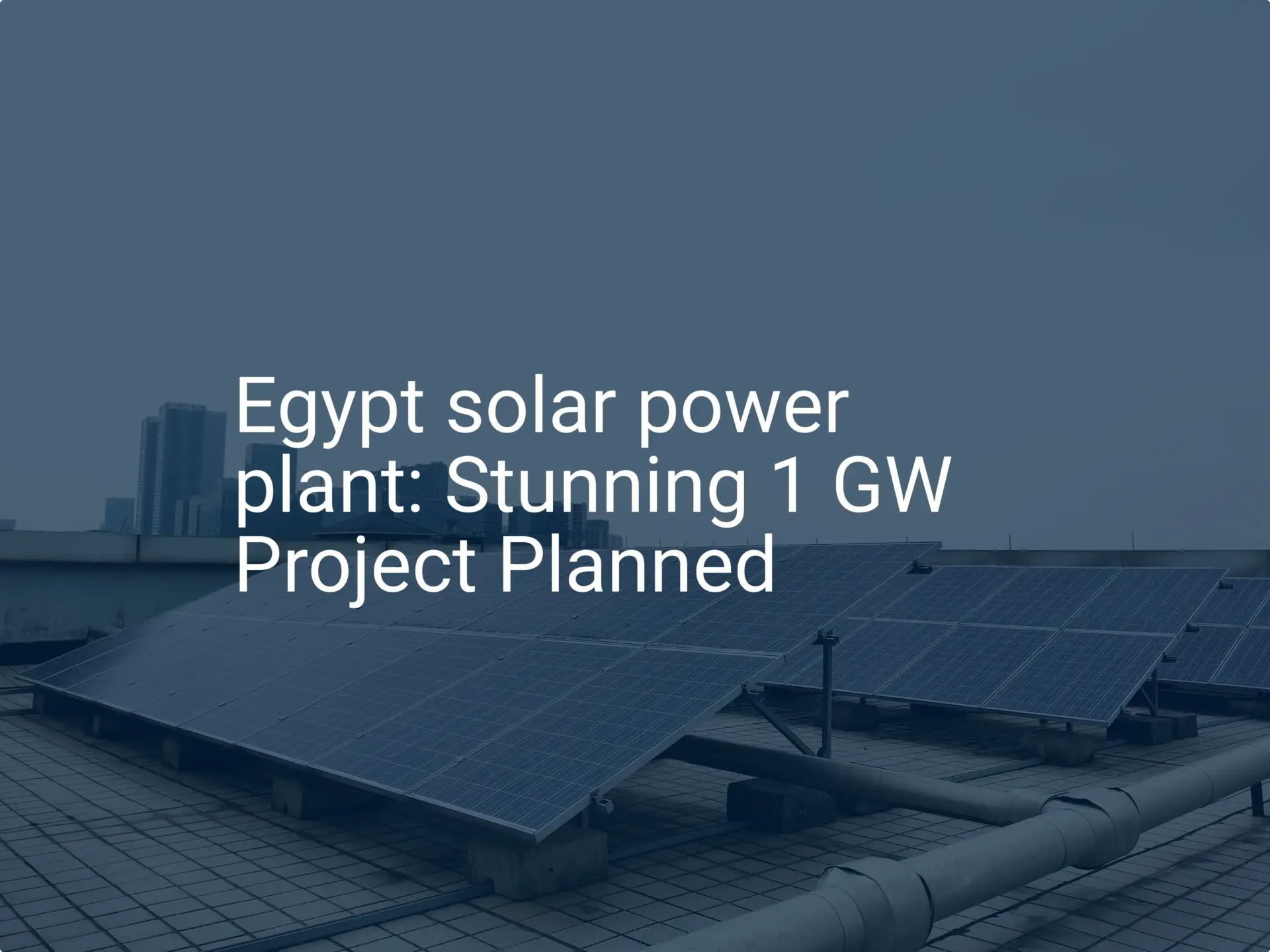Entrepreneurs evaluating entry into the solar manufacturing sector often focus intensely on production technology and market demand. Yet, logistics are frequently overlooked until they become a critical bottleneck. The physical journey of a solar module from the factory floor to the installation site can determine a project’s profitability, especially when crossing international borders. For businesses targeting European or Middle Eastern markets, the strategic location of their manufacturing facility isn’t just a detail—it’s a cornerstone of their competitive advantage.
This article explores a powerful solution to this logistical challenge: establishing a solar module production line within Egypt’s Suez Canal Economic Zone (SCZONE). It analyzes the unique combination of financial incentives, customs benefits, and geographic positioning that makes this location a compelling option for export-oriented solar manufacturers.
The Global Solar Supply Chain: A Landscape of Risk and Opportunity
The global solar supply chain is a complex network vulnerable to disruption. Recent events, such as the instability in the Red Sea, have highlighted how quickly shipping routes can be compromised, leading to significant delays and increased costs. For manufacturers based in East Asia, these disruptions can add weeks to delivery times for customers in Europe and the Middle East.
This volatility underscores a growing need for geographically diversified and resilient manufacturing hubs. Establishing production closer to end-markets not only mitigates geopolitical risks but also reduces transport times and costs, offering a more stable and predictable supply chain. In this light, strategic manufacturing locations become a powerful business tool.
What is the Suez Canal Economic Zone (SCZONE)?
The Suez Canal Economic Zone is a world-class, integrated economic hub established by the Egyptian government. Spanning 461 square kilometers, it comprises four industrial zones and six strategically located seaports along the banks of the Suez Canal—one of the world’s most critical maritime trade arteries.
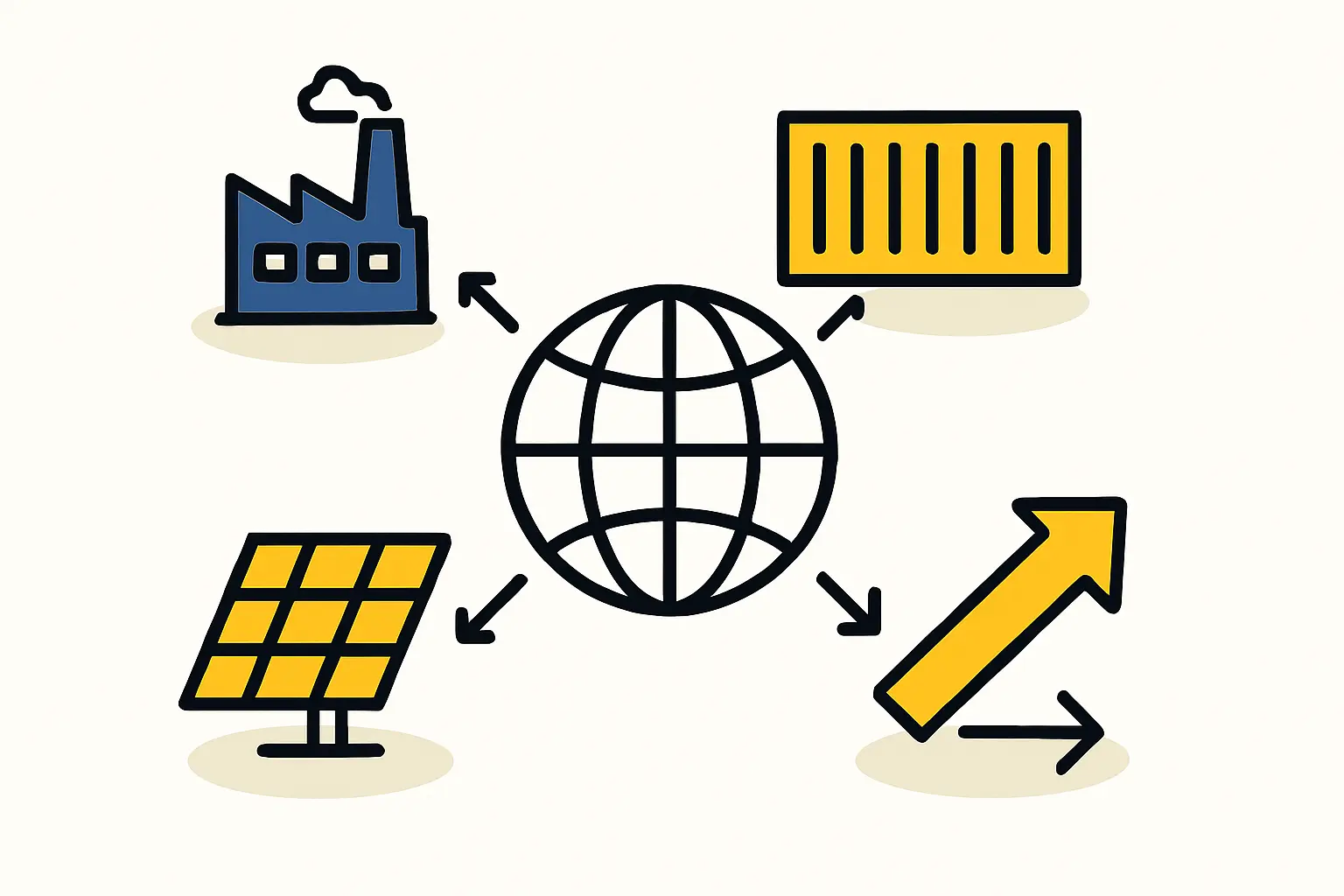
Unlike a traditional free zone, the SCZONE is designed to be a self-contained ecosystem for investment, production, and export. It offers a streamlined regulatory framework and robust infrastructure designed to attract international businesses, particularly in manufacturing and logistics. For a solar entrepreneur, it represents a pre-built platform designed to simplify the complexities of international trade.
Key Financial Incentives for Solar Manufacturers
The SCZONE’s financial framework offers substantial benefits that directly improve the viability of a new solar manufacturing venture by lowering both initial setup costs and long-term operational expenditures.
Favorable Tax and Customs Regime
One of the most significant advantages is its customs policy. All imported machinery, raw materials, and components required for production within the zone are subject to 0% customs tax and Value Added Tax (VAT). For a solar module factory, this applies to everything from the primary solar panel manufacturing machine to essential materials like solar cells, EVA film, backsheets, and glass.
This incentive directly reduces the initial capital investment required to equip a factory. These financial benefits should be a core component of any comprehensive solar panel manufacturing business plan.
Investment Security and Ownership
To attract foreign capital, the SCZONE operates under investment laws that provide strong guarantees and protections for businesses. A key provision is the right to 100% foreign ownership of projects established within the zone. This eliminates the need for local partners, giving international entrepreneurs full control over their operations and strategic decisions. The framework also ensures the freedom to repatriate profits and capital, providing investors with financial flexibility and security.
The Logistical Advantage: A Gateway to Global Markets
While the financial incentives are compelling, the SCZONE’s primary strategic value lies in its unparalleled geographic location. A factory situated here is positioned at the crossroads of three continents: Africa, Asia, and Europe.
Proximity to High-Demand Markets
For manufacturers targeting Europe, the SCZONE offers a significant reduction in shipping time and cost compared to production hubs in Asia. This proximity also allows for more agile responses to market demand.
Egypt’s numerous Free Trade Agreements (FTAs) also provide preferential access to key markets. Products manufactured in the SCZONE may qualify for reduced or zero tariffs when exported to the European Union, the Middle East, and various African blocs. This can provide a critical price advantage over competitors facing higher import duties. As the EU implements regulations like the Carbon Border Adjustment Mechanism (CBAM), producing in a geographically and economically aligned region like Egypt may offer further long-term benefits.
A Stable Hub in a Volatile Region
Located directly on the Suez Canal, manufacturers within the SCZONE are insulated from many of the disruptions affecting vessels that must travel through contested waters to reach the canal. Shipments originating from SCZONE ports enter the Mediterranean or the Red Sea directly, bypassing major chokepoints and ensuring more reliable delivery schedules.
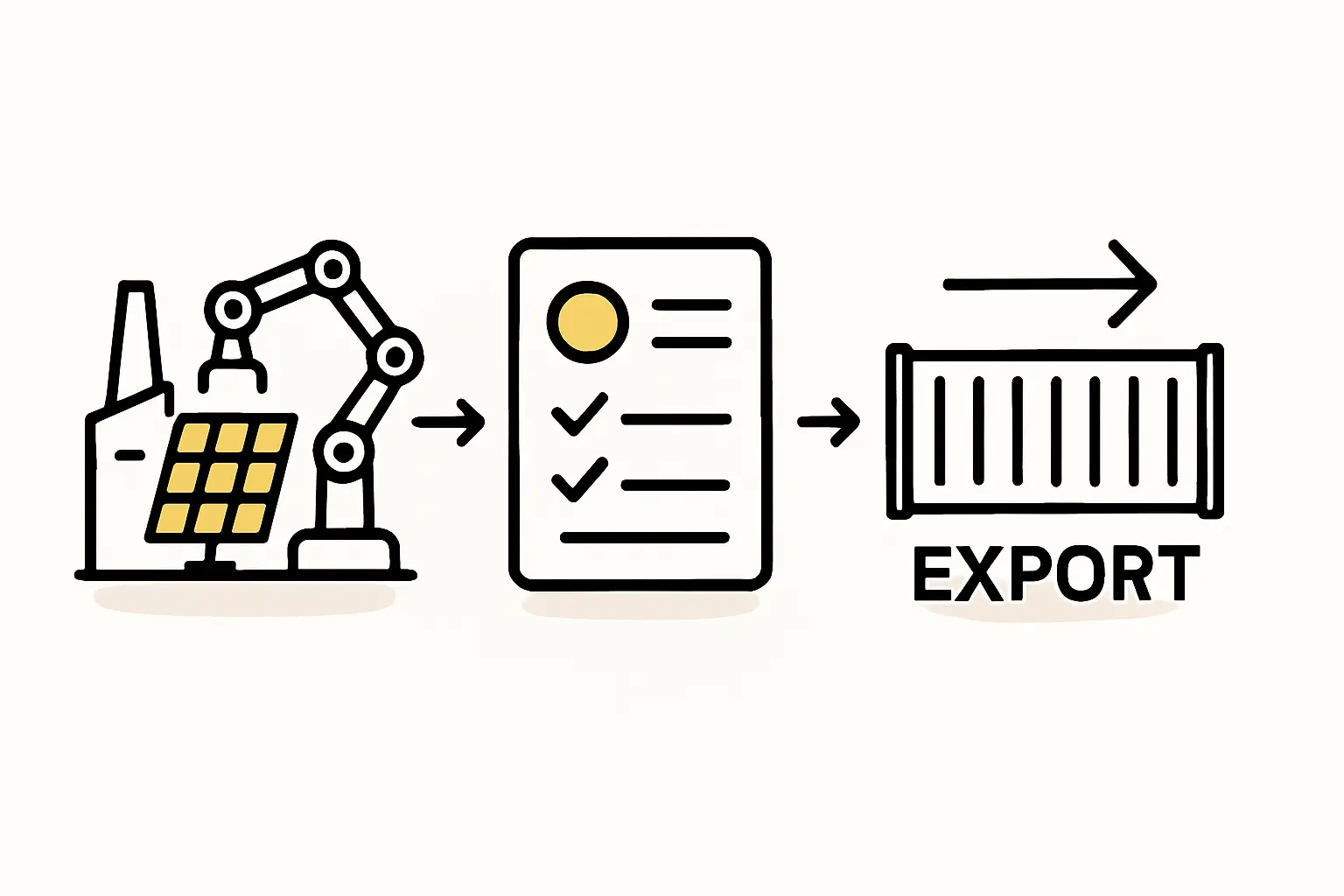
Labor and Operational Considerations
Egypt has a large, young, and motivated workforce. Its labor costs are competitive compared to many other manufacturing regions, significantly lowering a factory’s ongoing operational expenses. While specialized technical skills are essential, the country’s demographic profile provides a deep pool of trainable labor ready to be developed into a skilled production team.
A well-trained team is essential to manage the multi-stage solar panel manufacturing process efficiently. J.v.G. Technology’s experience in setting up turnkey factories shows that investing in initial and ongoing training is critical to achieving high production yields and quality standards.
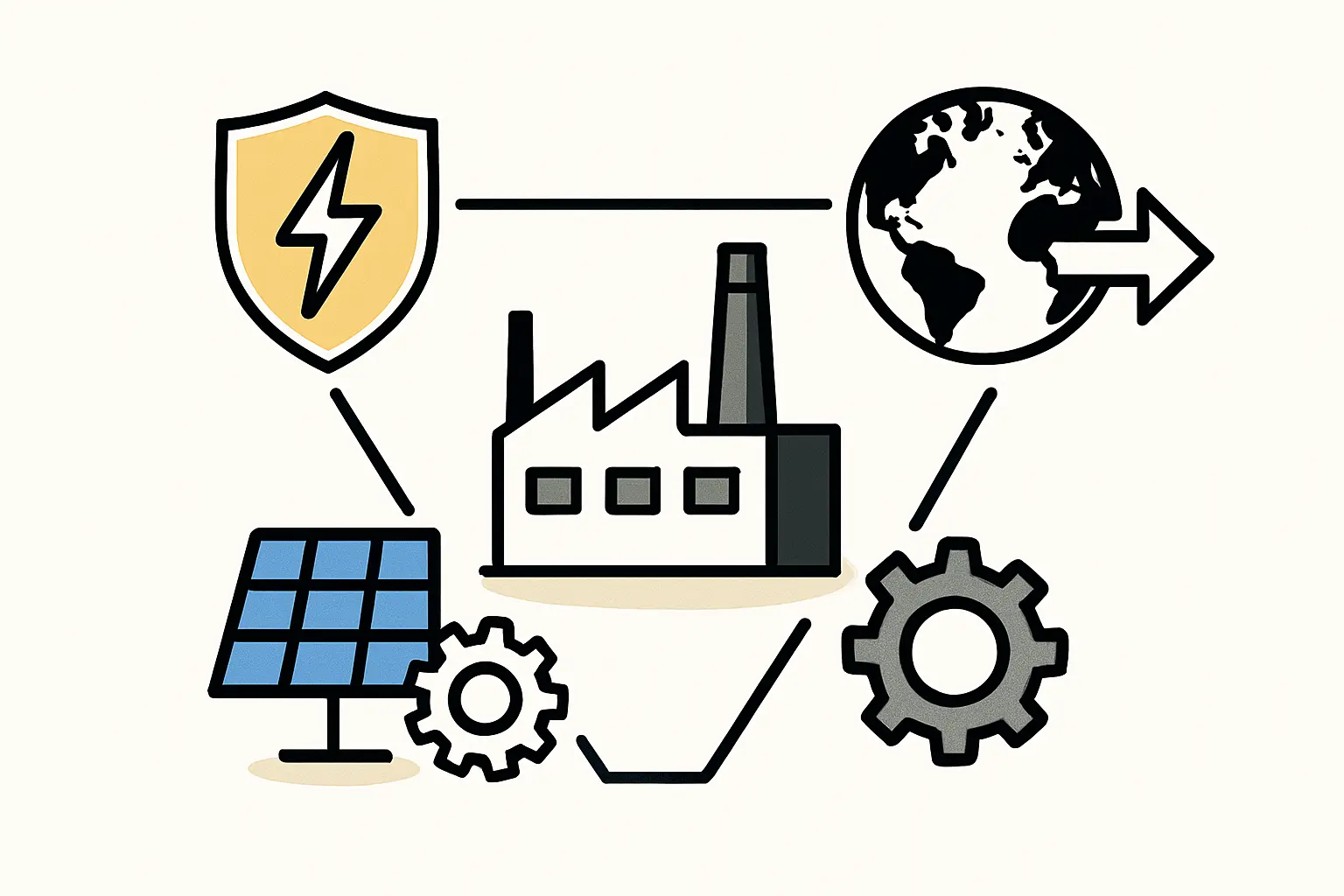
A Practical Perspective
A common challenge for new manufacturers is navigating complex international trade agreements. J.v.G.’s experience with turnkey projects shows that establishing operations in a zone like the SCZONE, with its favorable EU trade agreements, can simplify market entry significantly. For one project targeting the European market, this approach bypassed complex tariff calculations that would have applied to products manufactured in other regions, directly improving the project’s financial projections.
Frequently Asked Questions (FAQ)
Do I need a local Egyptian partner to establish a factory in the SCZONE?
No. The legal framework of the SCZONE permits 100% foreign ownership of companies and projects. This provides international investors with full operational and financial control.
What is the primary benefit of the SCZONE compared to other free zones?
The SCZONE’s unique advantage is its combination of three key factors: a prime strategic location at a global shipping chokepoint, a 0% customs and VAT regime on production inputs, and extensive Free Trade Agreements providing preferential access to major export markets like the EU.
Is the infrastructure within the SCZONE sufficiently developed for industrial manufacturing?
Yes, the SCZONE is an integrated development project featuring fully serviced industrial areas, modern port facilities, logistics services, and reliable utility connections designed to support large-scale manufacturing operations.
Conclusion and Next Steps
For entrepreneurs and investors planning to enter the export-oriented solar module manufacturing industry, the choice of location is a foundational strategic decision. The Suez Canal Economic Zone makes a compelling case, offering a potent blend of financial incentives, logistical efficiency, and preferential market access.
By significantly reducing capital expenditure, shortening supply chains, and de-risking market entry into Europe and the Middle East, the SCZONE provides a powerful platform for building a competitive and resilient solar manufacturing business. Understanding these strategic advantages is the first step. The next involves detailed planning and feasibility analysis to see how these benefits align with your specific business goals.

